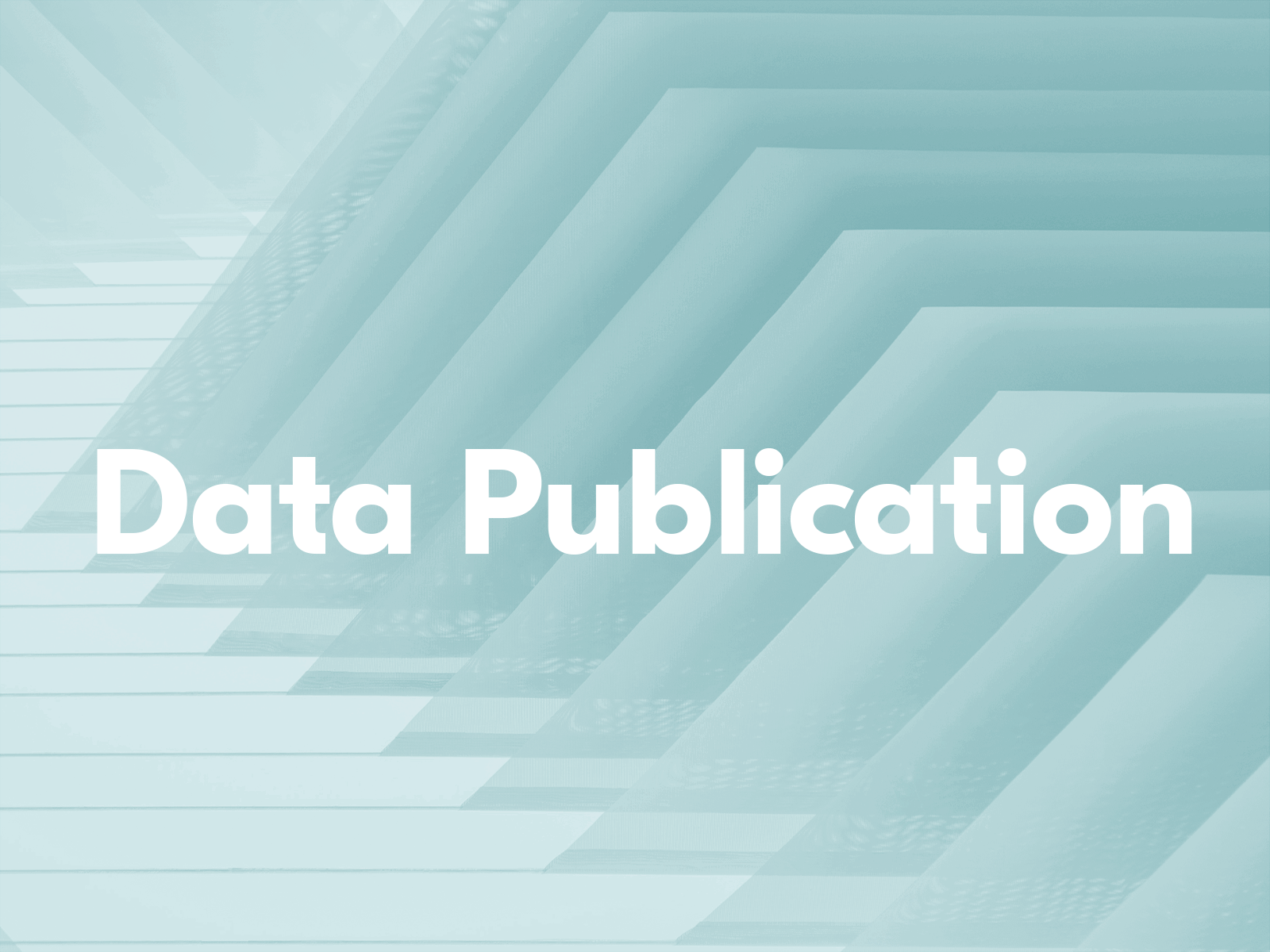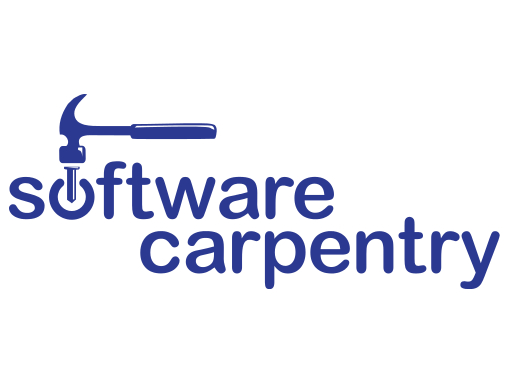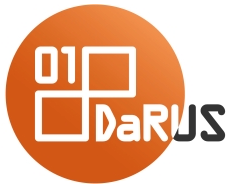IntCDC is aware of the significance of professional data management and has taken a number of measures to enhance awareness among its researchers. These include workshops and the development and provision of management plans. Another important building block is the utilisation of the collaborative infrastructure provided by the University of Stuttgart.
IntCDC Key Skills Workshops
The following recurring workshops are organized by the research data management team of IntCDC, partially in co-operation with other RDM or RSE groups at the University of Stuttgart.
Practical Data Publication
 The Practical Data Publication workshop takes place on regular bases and aims to introduce the researchers interactively to the IntCDC-specific RDM workflow. The participants will learn the processes hands-on and afterwards will be able to plan and document their data via the data or software management plan and publish their data on the FAIR data repository DaRUS. The workshop is complemented by regular office hours for individual support.
The Practical Data Publication workshop takes place on regular bases and aims to introduce the researchers interactively to the IntCDC-specific RDM workflow. The participants will learn the processes hands-on and afterwards will be able to plan and document their data via the data or software management plan and publish their data on the FAIR data repository DaRUS. The workshop is complemented by regular office hours for individual support.
Check the ILIAS course page for upcoming dates and more information.
Software Carpentry
 In cooperation with FOKUS, SimTech, and TIK we offer Software Carpentry Workshops on a half-yearly basis. Contents of the workshop are important basics for reproducibility of research with software, like Linux Bash, Version Control with Git and Programming and Plotting in Python. Professional teaching material is maintained by the Carpentries community. As a certified Carpentries Instructor, Matthias Braun is allowed to organize and hold Carpentry Workshops. Registration is open to all students and PhD students of IntCDC and the University of Stuttgart.
In cooperation with FOKUS, SimTech, and TIK we offer Software Carpentry Workshops on a half-yearly basis. Contents of the workshop are important basics for reproducibility of research with software, like Linux Bash, Version Control with Git and Programming and Plotting in Python. Professional teaching material is maintained by the Carpentries community. As a certified Carpentries Instructor, Matthias Braun is allowed to organize and hold Carpentry Workshops. Registration is open to all students and PhD students of IntCDC and the University of Stuttgart.
Check the ILIAS course page for upcoming dates and more information.
Research Software Engineering 102
In cooperation with SimTech, the RSE 102 workshop builds on the RSE basics (Unix shell, Git, Python), such as those learned in a Software Carpentry workshop, and deals with methods and tools used for good software engineering: Git workflows, containerization, testing and continuous integration, building and packaging, and software design principles.
Skills in these areas are crucial for developing or contributing to quality-assured software in collaborative environments and are very useful in today’s research landscape.
Material and more information can be found on the GitHub repository page.
Management Plans
Data Management Plan
 The IntCDC Data Management Plan describes the data management life cycle for the data, a Research Project of EXC IntCDC will collect, process and/or generate. Moreover, it describes whether and how this data is being used and/or made publicly available for verification and re-use and how the data will be curated and preserved after the end of the project.
The IntCDC Data Management Plan describes the data management life cycle for the data, a Research Project of EXC IntCDC will collect, process and/or generate. Moreover, it describes whether and how this data is being used and/or made publicly available for verification and re-use and how the data will be curated and preserved after the end of the project.
The generic Data Management Plan template of IntCDC is based on the Horizon 2020 template and is published on DaRUS. As stated in the project proposal of IntCDC, each Research Project (RP) has to provide its own Data Management Plan.
Software Management Plan
 As with research data, IntCDC considers research software not as a by-product but as an integral part of science. Software Management Plans (SMP) support organization of project management for research software, ensure transparency and allow quality assurance, and enable researchers to reflect on their own approach to new research software projects in a structured manner.
As with research data, IntCDC considers research software not as a by-product but as an integral part of science. Software Management Plans (SMP) support organization of project management for research software, ensure transparency and allow quality assurance, and enable researchers to reflect on their own approach to new research software projects in a structured manner.
Within IntCDC, we rely on the Software Management Wizard provided by ELIXIR. This online tool provides a state-of-the-art implementation of the FAIR Principles for research software and is continuously improved. The Wizard supports completing the questionnaire with additional hints and meta information. The SMP can be exported to various file formats at any stage, including a machine actionable format.
Collaborative Infrastructure
The following publically accessible infrastructure and services are provided by the University of Stuttgart and are made available to all participants of IntCDC to support and implement collaborative tasks related to RDM and RSE.
For internal collaboration IntCDC utilizes Confluence by Atlassian which is a web-based corporate wiki software that enables collaborative knowledge documentation. The University of Stuttgart runs their own on-premise Confluence Data Centre, which is available to all participants of IntCDC and serves as central knowledge base. The network share also provided by the University of Stuttgart allows the internal storage and exchange of large data and is the storage location for currently processed research data and administrative data.
DaRUS
 DaRUS, the data repository of the University of Stuttgart, offers a secure location for research data and codes, be it for the administration of own data, for exchange within a research group, for sharing with selected partners or for publishing. Data published on DaRUS complies with the FAIR Principles and is suitable for so called "cold" data that is in a final state and e.g. part of a publication. A persistent identifier (DOI) is assigned to each published dataset. All published datasets are easily citable and reusable for the research community.
DaRUS, the data repository of the University of Stuttgart, offers a secure location for research data and codes, be it for the administration of own data, for exchange within a research group, for sharing with selected partners or for publishing. Data published on DaRUS complies with the FAIR Principles and is suitable for so called "cold" data that is in a final state and e.g. part of a publication. A persistent identifier (DOI) is assigned to each published dataset. All published datasets are easily citable and reusable for the research community.
GitHub Enterprise

GitHub is a provider of internet hosting for software development and version control using Git, extended by own features. Technical Information and Communication Services of the University of Stuttgart (TIK) operates an on-premise instance of GitHub Enterprise for non-commercial research and teaching use.
Organisations
| GithHub.com | IntCDC |
| GitHub Enterprise | IntCDC | IntCDC-RDM-RSE |
| IntCDC-RPA-C | IntCDC-AP23 |
| IntCDC-RP3, IntCDC-RP4, IntCDC-RP10, IntCDC-RP11, IntCDC-RP12, IntCDC-RP14, IntCDC-RP19, IntCDC-RP26, IntCDC-RP27, IntCDC-RP28 |

